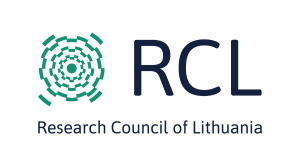Annual Lithuanian Political Science Conference “Vision of Resilience: Governance and Politics in the Context of Uncertainty”
In contemporary politics, the concept of resilience has become a crucial practical, analytical, and normative keyword, transcending national borders and traditional perceptions of threats. Resilience characterises not only the ability of a state, its society, institutions, economy, and other systems to function amid shocks but also their potential to transform and adapt to an ever-changing and unpredictable geopolitical, social, and informational environment.
The current environment of operation is complex, marked by overlapping crises: Russia’s war of aggression against Ukraine has been ongoing for the third year, the Middle East region faces new stages of military and political instability, and the evolution of transatlantic relations is marked by continuous shifts in stance, accelerated by Donald Trump’s return to power. At the same time, societies are experiencing growing polarization, increasing challenges to the stability of democratic institutions, informational resilience, as well as energy and economic security.
The Annual Lithuanian Political Science Conference “Vision of Resilience: Governance and Politics in the Context of Uncertainty”, which will take place on 4-5 December, 2025, at the Institute of International Relations and Political Science, Vilnius University, invites for a broader analysis of resilience – ranging from its hard (military, economic, strategic) to soft (informational, cultural, psychological) forms, and from conventional to unconventional security threats as well as responses to them. The conference aims to foster interdisciplinary dialogue on what it means to be resilient in nowadays global, European, and Lithuanian political context.
We invite to submit presentation and panel proposals that address, but are not limited to, the following resilience-related questions:
- How can national and international governance systems ensure resilience to crises?
- What is the role of economic policy choices in strengthening resilience?
- How are theories and practices of international relations changing in the context of resilience?
- How does resilience manifest itself in social structures, civic engagement, culture, and media?
- What role does resilience play in contemporary security and defense strategies?
- What is the role of informational resilience in combating disinformation and propaganda?
- How can we philosophically, normatively, and practically define democratic resilience?
Proposals of presentations and panels should be submitted by 19 October via this form.
Information regarding the selection of presentations and panels for the conference programme will be announced by 3 November. Proposals may be submitted in Lithuanian and English; however, remote participation in the conference will not be possible.
For any inquiries, please contact konferencija@tspmi.vu.lt.
 Elena Korosteleva is Professor of International Politics, leading the Institute for Global Sustainable Development at the University of Warwick. Her research focuses on the issues of complexity, resilience, designing alternative futures, democracy support and promotion across Central Eurasia; the concepts of governance and order in complex IR and Development studies. Elena leads the Warwick Ukraine-Belarus hub, the only such analytical centre in the UK with a focus on both countries; and was a co-founder of the Oxford Belarus Observatoryin 2021 to offer an in-depth analysis and policy recommendations to the UK, EU and international institutions on Belarus and the region. Elena’s Open Access single-authored book ‘Complexity and Community in IR: Nurturing resilience in Central Eurasia’ is forthcoming with Oxford University press (17 November 2025 – digital). Her research was highlycommended by the Times Higher Education in 2021, under the category of the Best International Collaboration of the Year, and she received further commendation by the University of Warwick in April 2025, and twice by the European Commission before.
Elena Korosteleva is Professor of International Politics, leading the Institute for Global Sustainable Development at the University of Warwick. Her research focuses on the issues of complexity, resilience, designing alternative futures, democracy support and promotion across Central Eurasia; the concepts of governance and order in complex IR and Development studies. Elena leads the Warwick Ukraine-Belarus hub, the only such analytical centre in the UK with a focus on both countries; and was a co-founder of the Oxford Belarus Observatoryin 2021 to offer an in-depth analysis and policy recommendations to the UK, EU and international institutions on Belarus and the region. Elena’s Open Access single-authored book ‘Complexity and Community in IR: Nurturing resilience in Central Eurasia’ is forthcoming with Oxford University press (17 November 2025 – digital). Her research was highlycommended by the Times Higher Education in 2021, under the category of the Best International Collaboration of the Year, and she received further commendation by the University of Warwick in April 2025, and twice by the European Commission before.
Prof. Korosteleva’s keynote speech will be based on her latest book, “Complexity and Community in International Relations: Nurturing Resilience in Central Eurasia“.
 Anders Wivel is Professor of International Relations in the Department of Political Science, University of Copenhagen. He has published widely on small state foreign policy, European and international order and peaceful change, and power politics. His academic articles have been published in journals such as International Affairs, International Studies Review, International Relations, Foreign Policy Analysis, European Journal of International Security, Ethics and International Affairs and European Security. His most recent book is International Organizations and Peaceful Change in World Politics (co-edited with T.V. Paul and Kai He, Cambridge University Press, 2025),
Anders Wivel is Professor of International Relations in the Department of Political Science, University of Copenhagen. He has published widely on small state foreign policy, European and international order and peaceful change, and power politics. His academic articles have been published in journals such as International Affairs, International Studies Review, International Relations, Foreign Policy Analysis, European Journal of International Security, Ethics and International Affairs and European Security. His most recent book is International Organizations and Peaceful Change in World Politics (co-edited with T.V. Paul and Kai He, Cambridge University Press, 2025),
See also
Conference programmeCoference organising committee:
Assoc. Prof. Dr. Vytautas Kuokštis
Assoc. Prof. Dr. Justinas Dementavičius
Dr. Viktorija Rimaitė-Beržiūnienė
Marius Danilevičius

This conference has received funding from the Research Council of Lithuania (LMTLT) (Agreement No. S-MOR-25-21).


If you have any questions, please contact us by email at konferencija@tspmi.vu.lt.







